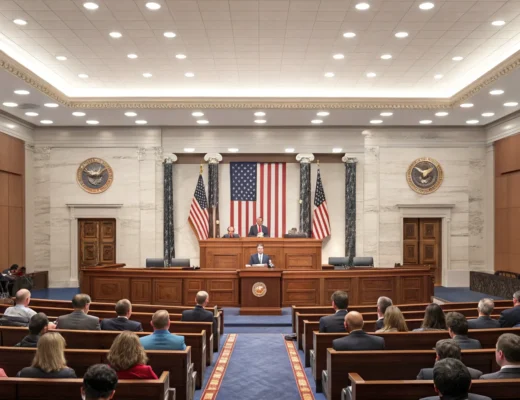This move has raised concerns among economists and political commentators who believe it will increase income inequality and hurt working people. Last year, Reeves criticized the Conservatives for “picking the pockets of working people” by implementing and maintaining the freeze on tax thresholds.From ‘Iron clad fiscal rules’ to fiddling the figures.
— Conservatives (@Conservatives) October 21, 2024
Is this another Labour election promise Rachel Reeves is about to break? pic.twitter.com/VQ9o7BJqey
Critics argue that it is contradictory for a Labour government to consider extending a measure that has significantly contributed to increasing income inequality. Polly Toynbee points out that Labour could adhere to its manifesto promise not to raise national insurance costs for working people by increasing the portion of this tax levied on employers. However, this shift could still indirectly impact workers, as businesses might offset additional expenses by reducing pay raises and other employment benefits.Honoured to see @guardian back the @NIESRorg view for an account of the government balance sheet and for the CHX to accept direct and transparent responsibility for our economic performance.@hmtreasury @ESRC @RJPartington@phillipinman @williamnhuttonhttps://t.co/IAXe8eYQri
— Jagjit S. Chadha (@jagjit_chadha) October 21, 2024
Patrick Donovan mentioned that Labour’s inability to win public support for tax increases to end austerity, reduce child poverty, and invest in public services has been a significant failure. Labour’s commitment to maintaining Tory fiscal policies, including ruling out raising income tax, is expected to further legitimize inequality, perpetuating disparities in wealth accumulation and life chances."A mess, chaos, carnage": inside the Labour budget revolt that could define the Starmer-Reeves project – by @michaelsavage https://t.co/7P4wPCr9fp
— Pippa Crerar (@PippaCrerar) October 20, 2024
Reeves’ controversial tax policy extension
Prof.Mike Stein from the University of York suggests that the government should pursue a more progressive income tax system alongside taxing asset wealth to foster a more equitable society. He emphasizes that simply taxing asset wealth without reforming income tax will not be enough to address the deep-rooted inequalities. Michael Meadowcroft proposes an alternative approach: taxing land instead of buildings. He points out that the soaring house prices over the past two decades are primarily due to land value appreciation rather than the cost of construction. Taxing land at its maximum permitted development value could provide a substantial revenue stream for the government. This strategy targets the wealth of developers and large corporations with extensive land holdings. These various perspectives highlight the complexity and potential consequences of Reeves’ tax policies. The debate continues, balancing fiscal responsibility with the need to reduce inequality and support working people.ICYMI, I wrote on what a very, very, very big deal the Budget is going to be https://t.co/TNNg0dti2D
— Robert Colvile (@rcolvile) October 21, 2024







